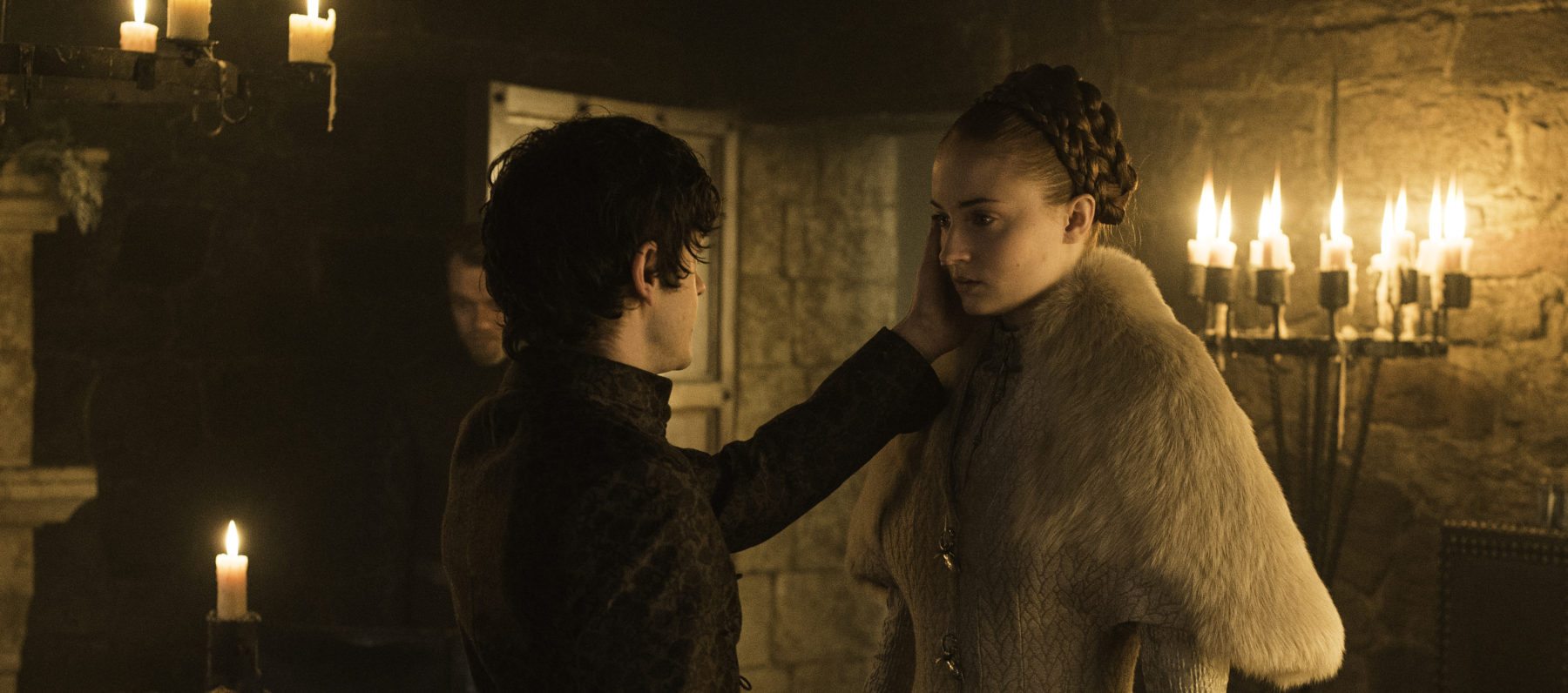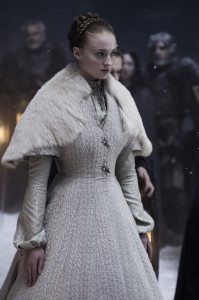Sexual violence in Westeros
[dropcap]T[/dropcap]he final scene of the Game of Thrones episode ‘Unbowed, Unbent, Unbroken’ has attracted criticism for a somewhat explicit portrayal of the wedding-night rape of Sansa Stark (Sophie White) by now-husband Ramsay Snow (Iwan Rheon).
What is most interesting about the online controversy is that – as anyone who’s followed the show for more than one episode will know – such sexual violence is hardly unprecedented.
So why the sudden attention? Is it character specific? Vanity Fair claimed Game of Thrones “Did not need to go there with Sansa Stark”, which is perhaps true, considering Ramsay and Sansa never marry in the original books.
Or is it the way it was handled? Lucy Hunter Johnston claims that the final pan to the face of Theon ‘Reek’ Greyjoy (Alfie Allen), who is being forced to watch, makes Sansa merely a “prop to his starring role”. She considers the whole scene “unnecessary, like a form of torture porn”.
Recently, George R.R. Martin, author of the book series, spoke in the scene’s defence, claiming it would be “fundamentally dishonest” to write about war without portraying its sexual violence.
Really, though, I don’t believe this controversy is incident-specific. What seems actually to be being discussed here, is the problematic presentation of women in Westeros.
Sure, the show is infamous for its strong female leaders like Cersei Lannister (Lena Heady) – a Queen Bitch who makes Regina George look positively cuddly – and audience-favourite human rights activist Daenerys Targaryen (Emilia Clarke). Of course, there are also its female fighters, like Brienne of Tarth (Gwendonline Christie), and the recently introduced Sand Snakes (Jessica Henwick, Laurenti Sellers, and Keisha Castle-Hughes).
But, honestly? Whether appropriately historical or not, the show has got into a bit of a habit of removing female power once it’s gained – or, at least as soon as it threatens men – so much so that I unthinkingly assumed that the loud-mouth wildling mother Karsi (Brigitte Hjort Soresnsen), in the latest episode, ‘Hardhome’, would be a love interest to Jon Snow (Kit Harington); die; or, most likely, both.
In classic Game of Thrones style, Karsi was killed off, her one weakness being – of course – her motherly instinct.
Coincidently (or perhaps not), this motherliness also seems to be the only identifiable cause of Cersei’s recent downfall
Similarly, Daenerys’s recent engagement to Hizadhr zo Loraq (Joel Fry), although this time by choice, still implies her to be merely an object in the marriage market; and Tyene Sand’s attempted feminist ownership of her body becomes just another prop to advance the men’s plot, as it leads to her giving Bronn (Jerome Flynn) the antidote to a poison inflicted by her own blade.
Plus, Brienne is only allowed to maintain power through rejecting her romantic feelings for Jaime Lannister (Nikolaj Coster-Waldau) and dressing like a man: a device also used with Arya Stark (Maisie Williams).
All this considered – and as reluctant as I am to say this about a show that I’m so fond of – Game of Thrones is, undeniably, sexist.
What is really being asked in this current debate, is whether the sexism should be excused as historically accurate, or criticised for perpetuating the stereotypes of women it portrays
While the show is largely Medieval, with George R.R. Martin defending both the TV series and his novels as simply reflecting “a patriarchal society based on the Middle Ages”, it is also ungrounded from historical chronology by its fantasy elements.
Some aspects of the show are even somewhat present-day (after all, part of George R.R. Martin’s defence was that rape is “still a part of war today”), or even futuristic (I can’t have been the only one seeing the post-apocalyptic world of The Walking Dead appear in White Walker form in ‘Hardhome’).
It is the confused genre, setting, and historiography of Game of Thrones that makes its sexism open to criticism. I’m not criticising the show for depicting a patriarchal medieval world – to quote Lucy Hunter Johnston, “we get it, being a woman in Westeros sucks” – but it certainly seems at risk of not just reflecting such a world world, but of treating its characters in a patriarchal way, favouring men over women, and falling back on using women’s gender against them for shock factor or plot advancement.
The TV show’s freedom to deviate from the books, along with these confusions of setting and genre, could give Game of Thrones a space to challenge, rather than reinforce, damaging gender stereotypes. This change of attitude would surely only further the show’s success.



Comments